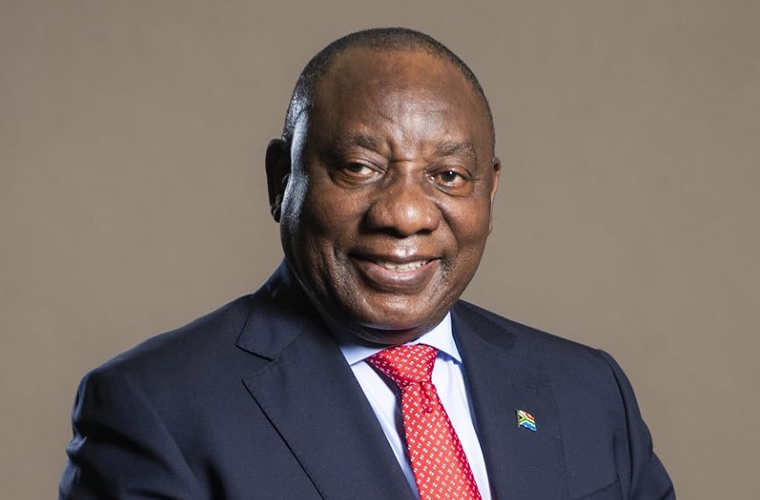Matamela Cyril Ramaphosa was born on November 17, 1952, in Johannesburg, South Africa, the second of three children of Samuel and Erdmuth Ramaphosa. His family later moved to Soweto in 1962, where he grew up during the height of apartheid. He attended Mphaphuli High School in Venda, matriculating in 1971, and later studied law at the University of the North (now the University of Limpopo). During his university years, Ramaphosa became deeply involved in student politics, joining the South African Students’ Organisation (SASO) and the Black People’s Convention (BPC). His activism led to multiple detentions under the apartheid regime, including nearly a year in solitary confinement in 1974. He later completed his Bachelor of Proc degree through the University of South Africa (UNISA) while working as a law clerk in Johannesburg.
In 1982, Ramaphosa founded the National Union of Mineworkers (NUM), which grew into one of South Africa’s most powerful trade unions, representing hundreds of thousands of miners. As general secretary of the NUM, he became a leading figure in the anti-apartheid movement and helped establish the Congress of South African Trade Unions (COSATU) in 1985. His leadership and negotiation skills brought him national prominence, especially during the turbulent 1980s when labour unions were at the forefront of the fight for political freedom.
Following the unbanning of liberation movements, Ramaphosa was elected secretary-general of the African National Congress (ANC) in 1991 and became a key negotiator in South Africa’s transition to democracy. He played a pivotal role in drafting the country’s new constitution and chaired the Constitutional Assembly that adopted it in 1996. Though widely seen as a potential successor to Nelson Mandela, Ramaphosa stepped back from active politics in the mid-1990s and entered the business world.
He founded the Shanduka Group, an investment holding company with interests in energy, real estate, and banking, and served on the boards of several major corporations. His business success made him one of South Africa’s wealthiest individuals and a symbol of Black Economic Empowerment, though his wealth sometimes drew criticism from within the ANC’s working-class base.
Ramaphosa returned to frontline politics in 2012 when he was elected deputy president of the ANC and later served as Deputy President of South Africa under Jacob Zuma from 2014 to 2018. After Zuma’s resignation amid corruption scandals, Ramaphosa became President of South Africa on February 15, 2018. His presidency has focused on anti-corruption measures, economic revitalization, land reform, and rebuilding state institutions weakened by years of mismanagement.
His tenure has not been without controversy. The 2012 Marikana massacre, which occurred while he was a non-executive director of Lonmin Mine, continues to shadow his legacy. Ongoing challenges such as economic inequality, unemployment, and the energy crisis have tested his leadership. Nevertheless, he has maintained a reputation as a pragmatic reformer and a unifying figure within a fragmented political landscape.
In 2024, Ramaphosa led the ANC into a coalition government after the party lost its parliamentary majority for the first time since 1994, marking a new era in South African politics. He has been married to Dr Tshepo Motsepe, a medical doctor and sister of mining magnate Patrice Motsepe, since 1996. They have five children. Cyril Ramaphosa’s life mirrors South Africa’s own evolution—from oppression to democracy, from protest to governance, and from inequality toward inclusion. His journey from student activist to trade unionist, from businessman to president, reflects the complex blend of idealism and pragmatism that continues to shape the nation’s destiny.

